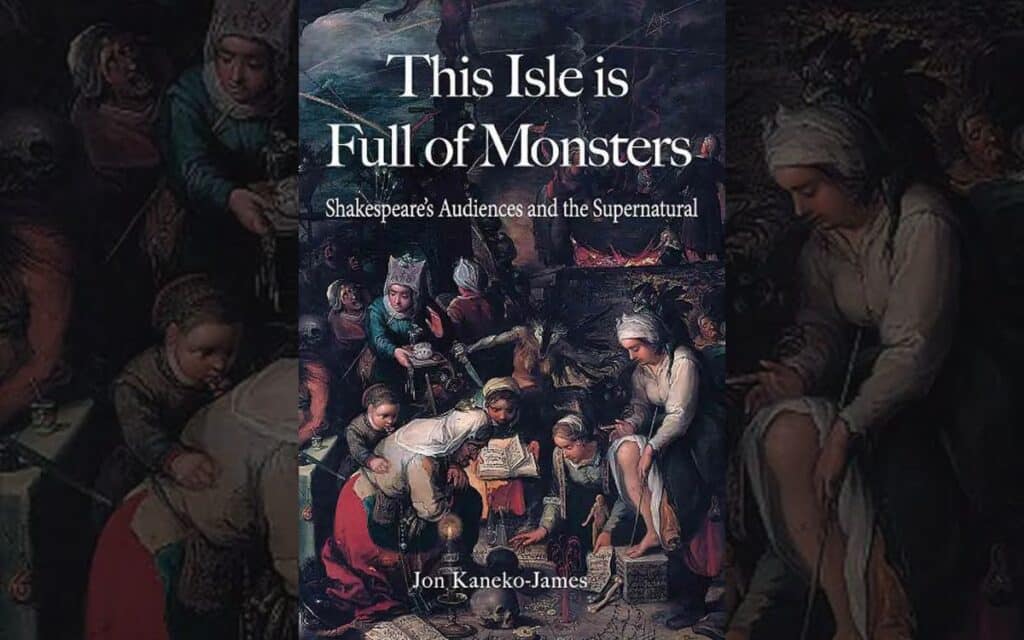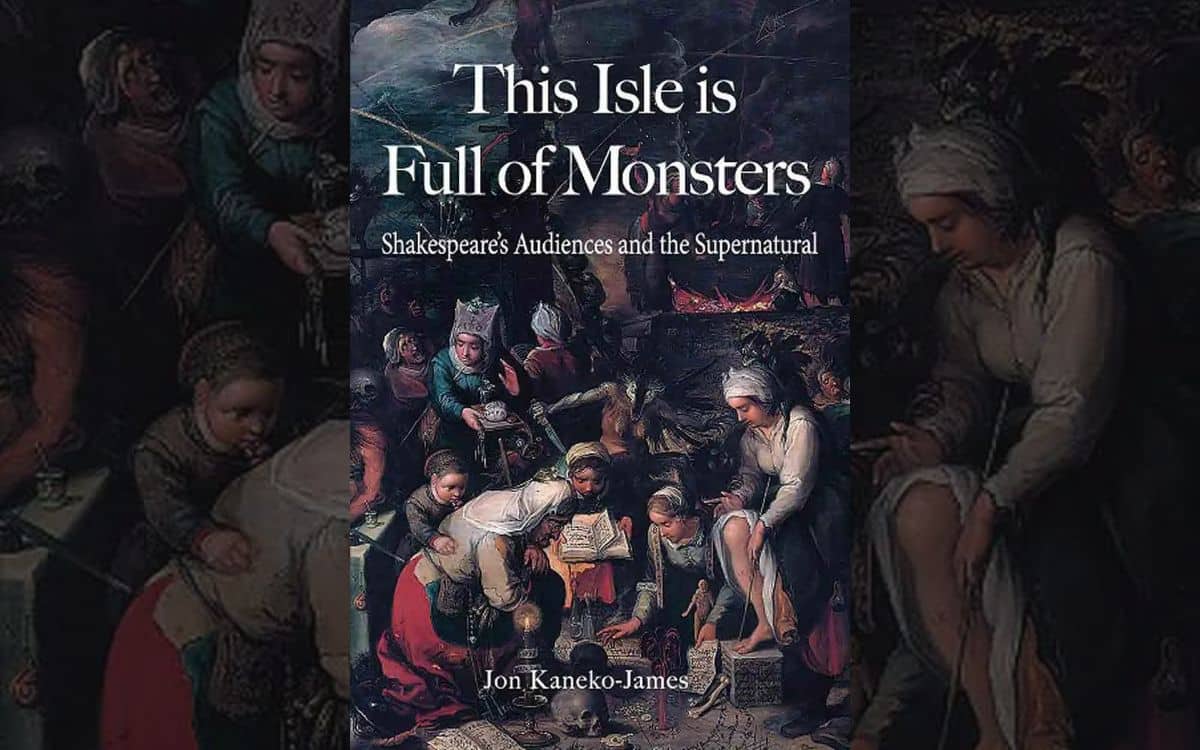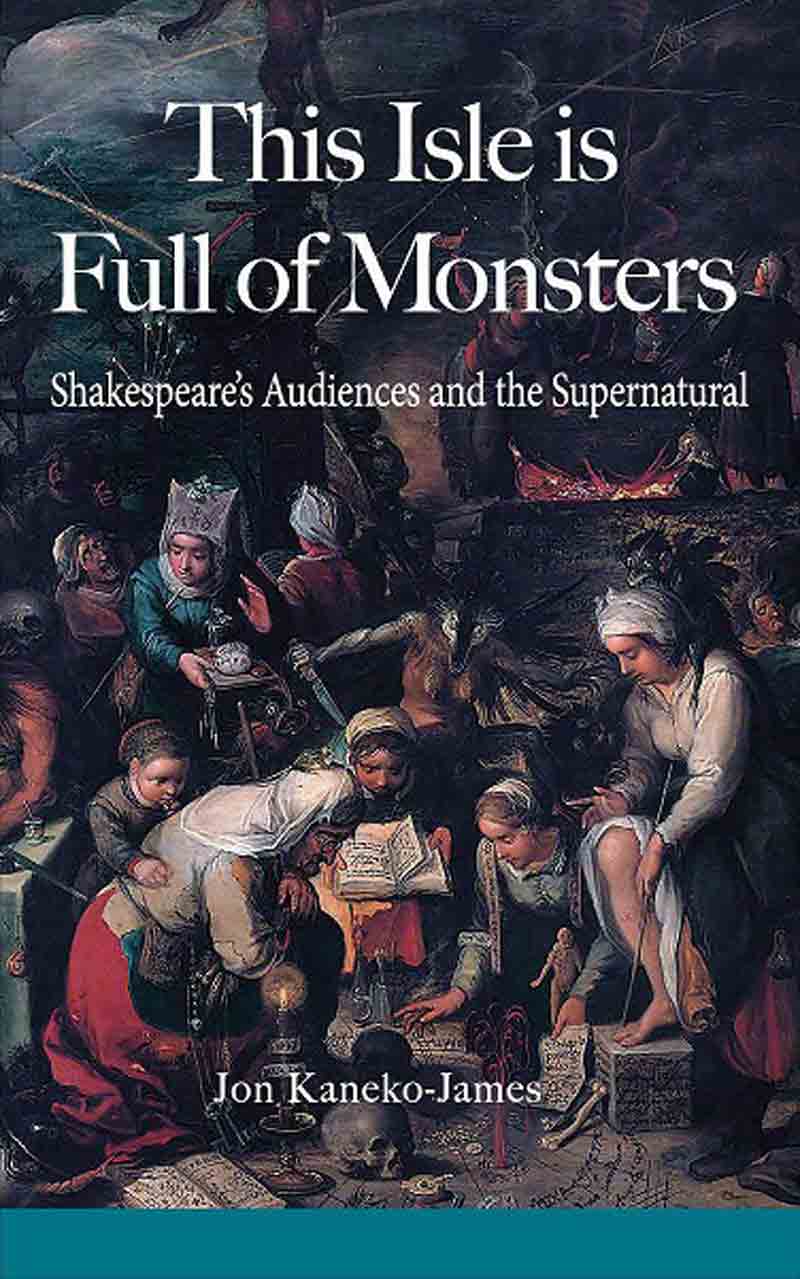London-based writer/historian Jon Kaneko-James tells Spooky Isles about his new book, This Isle is Full of Monsters, and how we need to relook how people thought about the supernatural in Shakespeare’s times…

This Isle Is Full of Monsters Interview
SPOOKY ISLES: Really interesting book Jon, it’s a great read. But did we really need another book about Shakespearian England – hasn’t Horrible Histories done it all?
JKJ: My big interest is in the way that people living at Shakespeare’s time understood the supernatural. As much as I like things like the Horrible Histories series, there is a tendency in popular belief (and some professional spheres) to regard citizens of the past as in some way less than us: less developed, less intelligent.
Yet, the 16th century craftsman Peter Street was able to build the Globe from the bones of James Burbage’s Theatre. We know the builders of the great Cathedrals made plans as they went along – often on the stone walls of the very cathedrals they were building – but still worked very much ad hoc, using experience and plans sketched as they went along. Street likely did the same thing.
These men were plainly not stupid, nor were the many just like them who nevertheless believed in a literal, non-metaphorical God, in fairies, demons, ghosts and a variety of other elements modern citizens would consider superstitious rubbish – which is where my interest begins.
If we accept that self-taught Latin speaker and chemical medic Simon Forman, mathematician John Dee, business woman Anna Taylor and highly educated monarch King James VI/I were as bright as any of us, then it becomes really interesting to study what kind of understanding and worldview led to their believing in things that we now take as fiction.
I also think that particularly with the plays of Shakespeare, but also with other plays from the time, we watch them now with such a long built-up understanding of what the supernatural means to us, that it’s really interesting to go back and investigate what it to the people seeing the plays when they were new.
You’ve worked as a historian, guide and writer for many years, specialising in the occult, witchcraft and other dark goings on – how did you fall into this time of work?
At the risk of vindicating people like the Bothered About Dungeons and Dragons campaigners of the 1980s, my interest in the history of the supernatural started when I played D&D as a kid.
I loved mythology, and a lot of the elements of first and second edition D&D were deliberately crafted from Medieval figures and folklore. As I grew up, it fascinated me that, whether or not magic was a real thing, there really had been various spellbooks through history, and I wanted to know more about the people who owned them. I even have two semi-regular threads on my website – Things that D&D got Right, and D&D vs History.
About 10 years ago, when I got a job as a tour guide at Shakespeare’s Globe, I started to realise that there was a similar interaction between the supernatural and the plays of William Shakespeare, which led to a more general interest in the pre-industrial worldview and how they felt about the supernatural around them.
How would you sum up your book, This Isle is Full of Monsters: Shakespeare’s Audiences and the Supernatural?
This Isle goes through four of the supernatural tropes that interest me the most from Shakespearean drama – sorcerers, demonic possession, witches and fairies – an asks the obvious questions. What would Prospero have to have done to get his powers? Would it have allowed him to be a good Duke? Who is the ‘Little Darrell’ mentioned by Ben Johnson, and why do so many writers of the time include a comedy demonic possession scene? Why did seemingly bright people believe in witches? How can fairies be ghosts, demons and nature spirits all at the same time?
It might be obvious to anyone who is drawn to The Spooky Isles, but why were you drawn to this particular topic – why do you like Spooky Shakespeare?
I honestly just think it’s cool. I’m partly drawn to it from a sense of romance, but also because I’m fascinated but the supernatural world that people of the 16th and 17th century lived in. Although popular beliefs would continue through into the 20th century, Shakespeare’s lifetime was a period of huge change: his birth was registered in Latin but his death in English.
He saw the last period where the authorities explicitly endorsed the supernatural, but nevertheless included material in his plays from government-sponsored books debunking demonic possession. We can tell that people believed in fairies because some of them got fleeced by con artists who pretended to be fairies – but the fact that these con artists existed suggests that not everyone believed as much.
So give us a look into your crystal ball, and tell us what is in the future writing of Jon Kaneko-James…
I would definitely like to write more about topics like ghosts, visions, prophesies and automata, which could well provide material for a second book.



